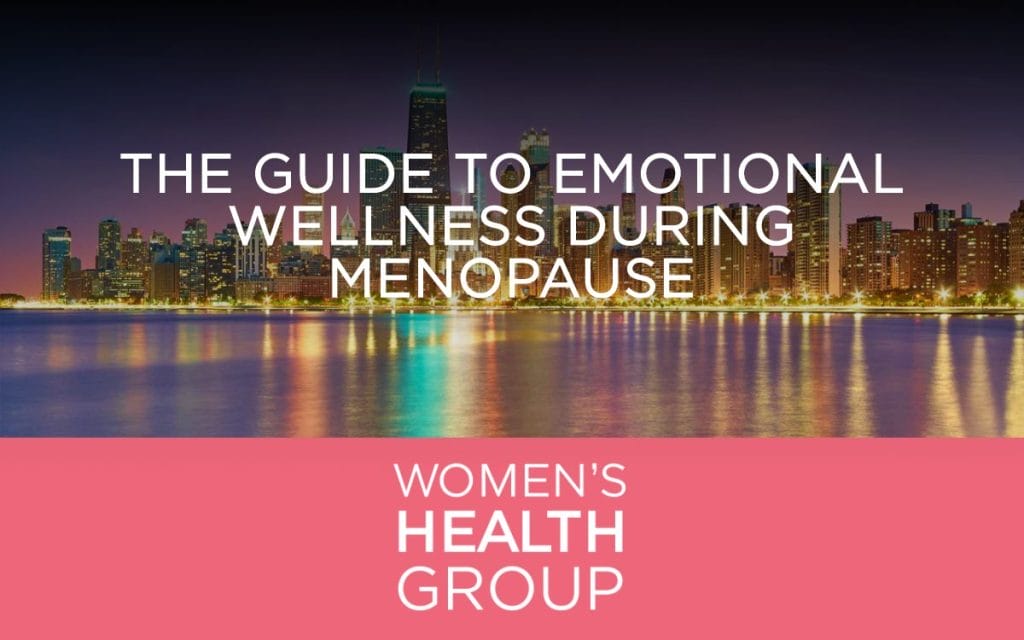Understanding Menopause and Its Impact on Emotional Health
Menopause, an inevitable phase in a woman’s life, is often associated with a myriad of physical symptoms–from hot flashes to itching skin. These symptoms undeniably pose significant discomfort but there’s another aspect that requires equal, if not more, attention—emotional health.
During menopause, hormonal fluctuations can lead to emotional and mental changes, which might be overwhelming for some women. Recognizing and acknowledging these fluctuations as a normal part of the transition can drastically improve women’s emotional wellness during this critical phase. In this article, the Women’s Health Group explores the profound correlation between menopause and emotional health and provides effective strategies for enhancing emotional wellness.
Menopause and Emotional Health: The Interconnection
When discussing menopause, it is also crucial to view it from an emotional and mental health perspective. It’s not just about the end of the menstrual cycle – menopause is a significant life transition involving hormonal, physical, and emotional changes. According to Mayo Clinic, hormonal changes during menopause can influence brain chemicals and lead to mood changes and increased risk of depression.
Identifying Emotional Health Challenges During Menopause
During menopause, hormone fluctuations can lead to emotional health challenges. Some common indicators include, but aren’t limited to:
- Fluctuating moods characterized by irritability, elevated levels of stress, or anxiety.
- A significant change in sleep patterns—a common symptom of menopause due to night sweats, which may lead to insomnia and exacerbate mood changes.
- Episodes of intense worry, fear, or panic attacks.
- Feeling low, uninterested, and slowed down, which might suggest depression.
- Experienced memory lapses or trouble focusing and making decisions.
Emotive Wellness Strategies During Menopause
Transitioning through menopause can indeed be challenging but fortunately, there are several strategies you can employ to enhance your emotional wellness during this phase:
1. Balanced Diet and Regular Exercise
During menopause, fluctuations in the hormonal balance can impact your mood. Eating a balanced diet rich in fruits, vegetables, lean proteins, and healthy fats can keep your hormones in check, and maintain your overall well-being. Aerobic exercises and strength training, on the other hand, help release endorphins—the happiness hormones, which can boost your mood.
2. Adequate Rest and Sleep
Sleep disturbances are quite common during menopause. Maintaining good sleep hygiene, including sticking to a regular sleep schedule and creating a restful environment, can improve the quality of sleep.
3. Emotional Support
Don’t hesitate to seek the support of friends, family members, or a professional counselor during this phase. Sharing your thoughts and feelings can relieve stress and provide a valuable perspective.
4. Mindfulness and Meditation
Mindfulness and meditation techniques can help manage stress levels and stabilize mood changes. They provide a way to navigate through emotional upheaval by fostering self-awareness and acceptance.
5. Hormone Replacement Therapy (HRT)
Women’s Health.gov suggests hormone replacement therapy (HRT) as a way to alleviate menopausal symptoms, including those impacting emotional health. However, it’s critical to discuss potential risks and benefits with a healthcare provider before opting for HRT.
Conclusion
We seldom give emotional wellness the attention it deserves during menopause. However, managing one’s emotional health deserves to be high on the list of priorities. By acknowledging the emotional implications of menopause and adopting the right wellness strategies, you can navigate through this transitional phase with resilience and strength. Remember, there’s no shame in seeking support when you need it. Emotional wellness during menopause is not a solitary journey—it’s a collaborative effort.




